Can the 'radical' Peugeot 508 family saloon tempt people away from SUVs?
It’s a fresh style and an agile drive, but is it enough to keep up with Audi, BMW and Mercedes-Benz, asks Sean O’Grady
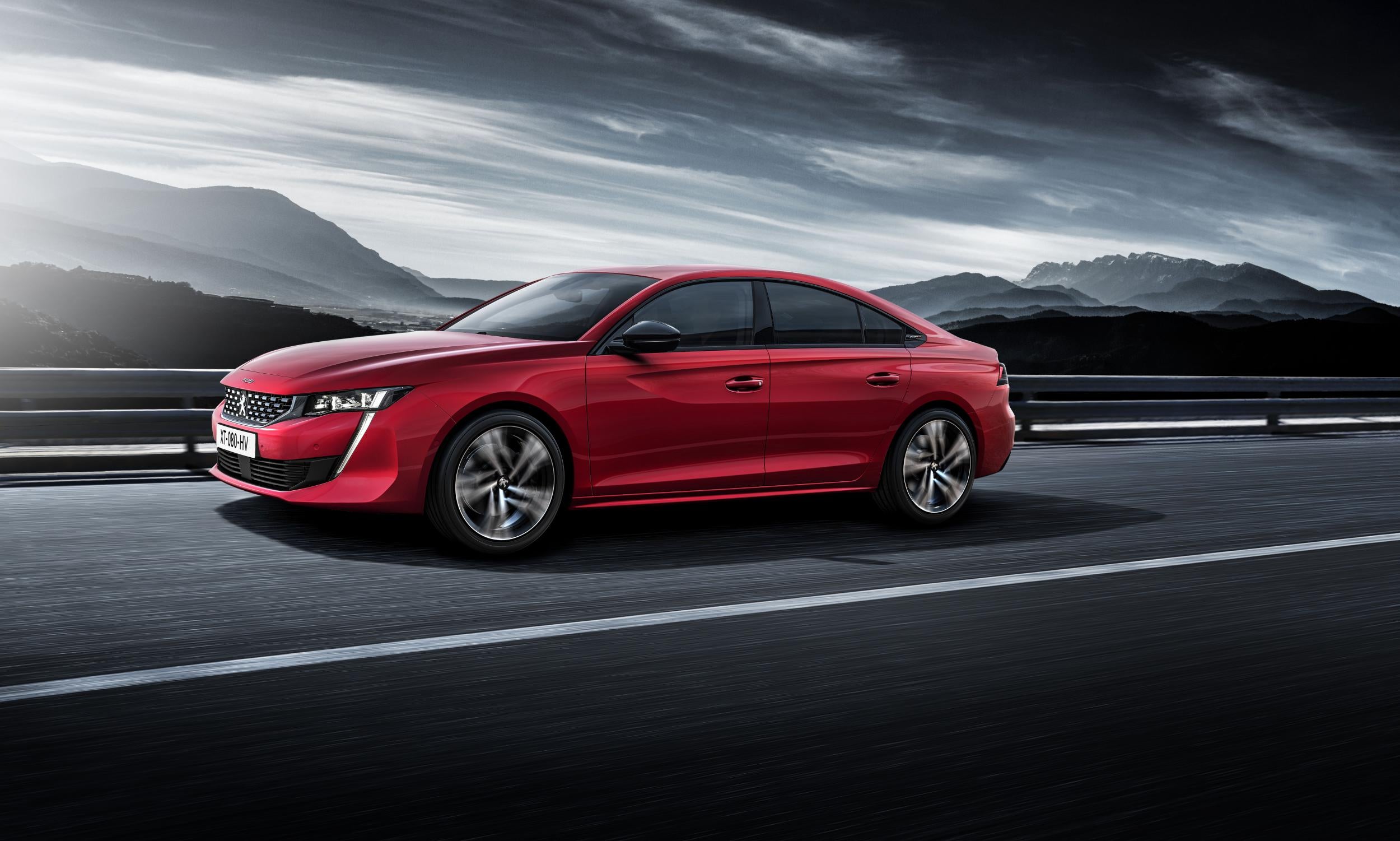
Your support helps us to tell the story
From reproductive rights to climate change to Big Tech, The Independent is on the ground when the story is developing. Whether it's investigating the financials of Elon Musk's pro-Trump PAC or producing our latest documentary, 'The A Word', which shines a light on the American women fighting for reproductive rights, we know how important it is to parse out the facts from the messaging.
At such a critical moment in US history, we need reporters on the ground. Your donation allows us to keep sending journalists to speak to both sides of the story.
The Independent is trusted by Americans across the entire political spectrum. And unlike many other quality news outlets, we choose not to lock Americans out of our reporting and analysis with paywalls. We believe quality journalism should be available to everyone, paid for by those who can afford it.
Your support makes all the difference.When first I encountered a row of the new Peugeot 508 models I was immediately reminded of a “bask” of crocodiles. What an appropriate collective noun that is for crocs, and for the Peugeot too.
It’s got a grille treatment that makes it looks like it’s got snaggly teeth (well, a bit), and it’s all low slung and lazy; looking, though, like its reptilian inspiration, ready to strike with lightning speed.
I was going to extend the metaphor to transporting its young tenderly in its powerful jaws, but that would just be silly.
Peugeot people prefer to use the word “radical” to crocodile when talking about their car, understandably enough. That’s still puzzling actually, because it’s not that radical really, bringing out a family saloon I mean.
Even though the market for what the trade calls D-segment cars has been heavily squeezed by the SUV boom, there are still a few familiar contenders – Ford Mondeo, Vauxhall Insignia, Volkswagen Passat, Kia’s new Stinger.
Apart from the VW, they all opt for a hatchback treatment, and mostly feature fastback styling, aspiring to the look and image, and premium pricing, they’d hope, of the Audi A5. The 508 is certainly aiming to be a “high-end generalist” offering in Peugeot-speak. Translated that means they’d like to be seen in the same frame as VW rather than Ford, but don’t claim to be toe-to-toe with BMW.
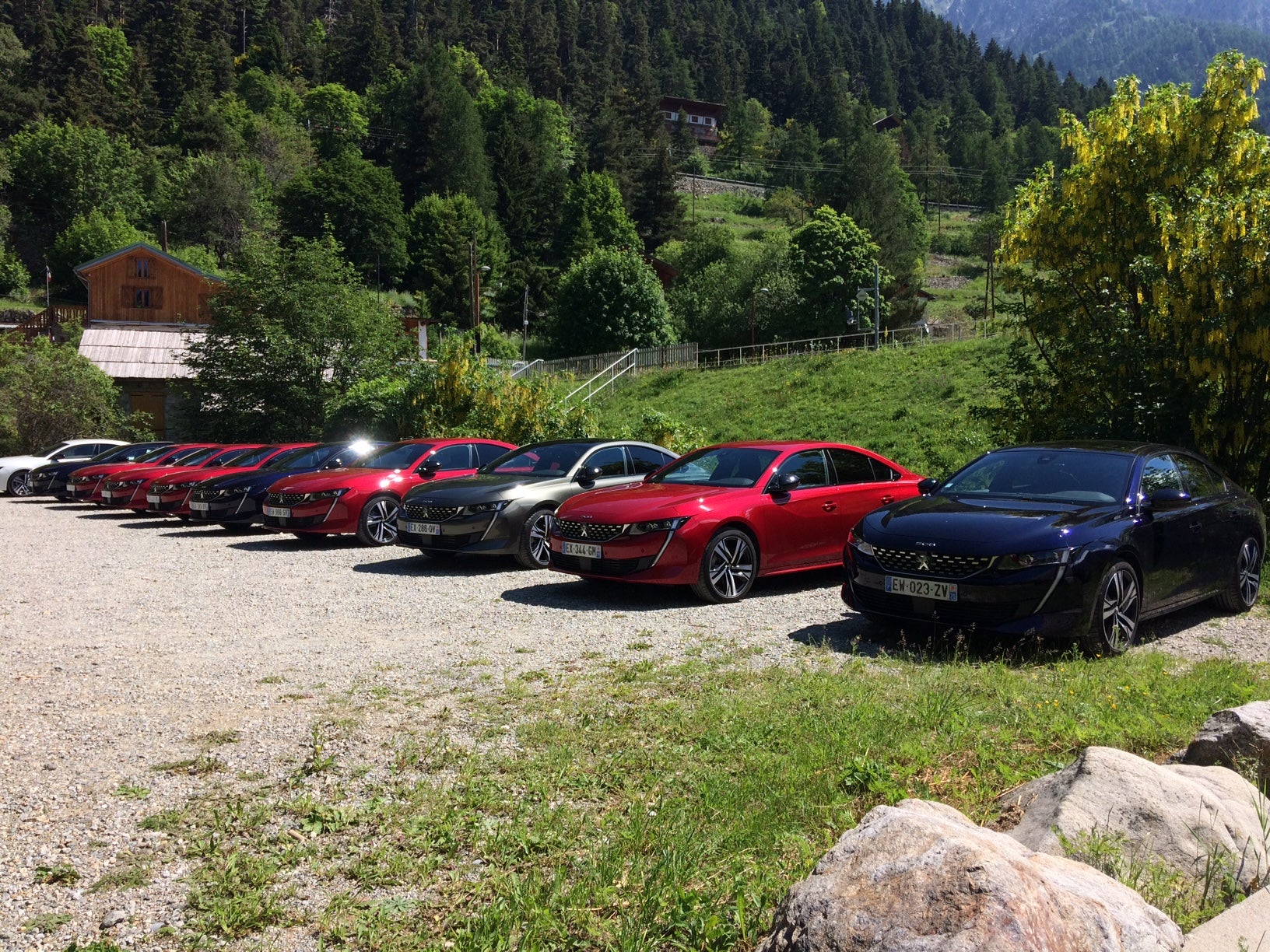
So the car is quite conventional in conception, and is plainly an evolution of the previous 508 model, which was moderately successful.
On first acquaintance Peugeot has succeeded in engineering some more quality into the 508 just as it did in its faster selling newer SUVs the 3008 and 5008. This is part of a long and painful rehabilitation for the Peugeot brand, which in turn has been helping PSA Group (which owns Citroen, DS and now Opel-Vauxhall) make impressive financial progress.
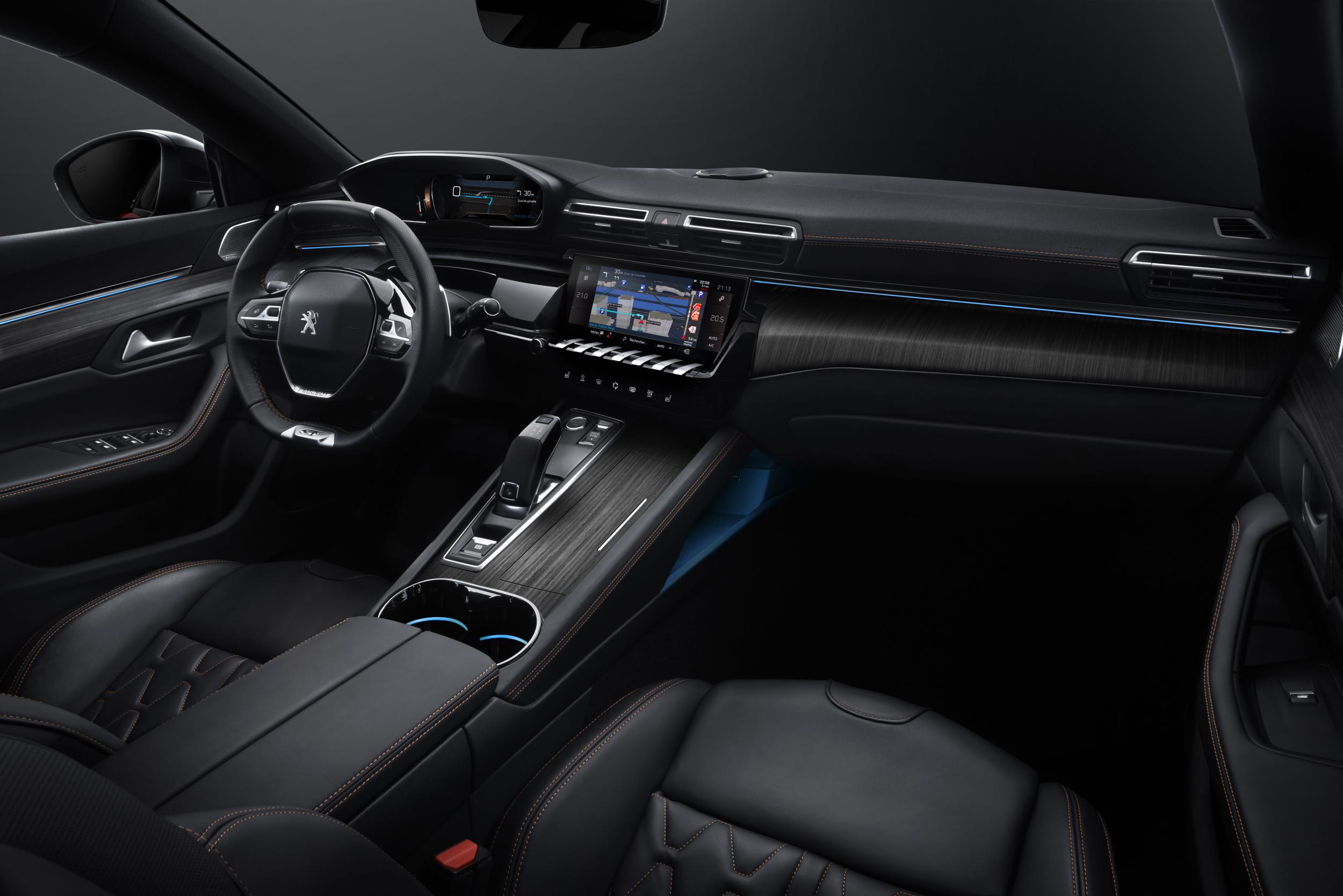
In the 508, then, the quality of the materials, the fit and finish, and the attention to detail all show an ambition to close in on VW, which was the benchmark for their designers. They say that the assembly of the body combines welding and “bonding” (glue to you and me) that makes it more rigid, one of the keys to decent chassis. In most respects they have succeeded, though how durable this new breed of Peugeots prove to be only time will tell, if you’ll excuse the cliché.
The petrol engined versions are the ones to go for, as their refinement is much superior to the diesels. I’d put it this way: the petrol engined 508 is a match for its rivals, but the diesel 508, competent as it is, isn’t quite.
The spec
Peugeot 508 1.6 PureTech 180 Auto
Price: Around £36,00
Engine capacity: 1.6 litre petrol 4cyl, 8-sp auto
Power output (hp @ rpm): 181
Top speed (mph): 143
0-60mph (seconds): 7.9
Fuel economy (mpg): 52.3
CO2 emissions (g/km): 123
Peugeot’s “Blue Efficiency” engine range is well engineered, reliable, and has won many awards, but the petrol varieties are the leaders. It much suits the character of the car, which is designed to be a little bit of a throwback to much loved and respected models from the past, such as the 504, launched 50 years ago and still looking good – and fabled for its blend of rugged strength and supply ride.
Peugeot has reverted to the traditional kind of torque converter automatic, with eight speeds, and this is well-matched to the 508, rarely displaying any hesitancy.
The best of French, in other words, is what the 508 aspires to represent and the suspension settings and the rigidity of the body do make for an extraordinarily comfortable ride. It’s also perfectly responsive enough to offer a little entertainment and, as so often on middle and upmarket models now, the makers offer the driver various settings to make it sportier, comfier or economy oriented. It wouldn’t surprise me to see Peugeot bring out a GTi version, as with the 308, and the 508 could certainly take the additional power.
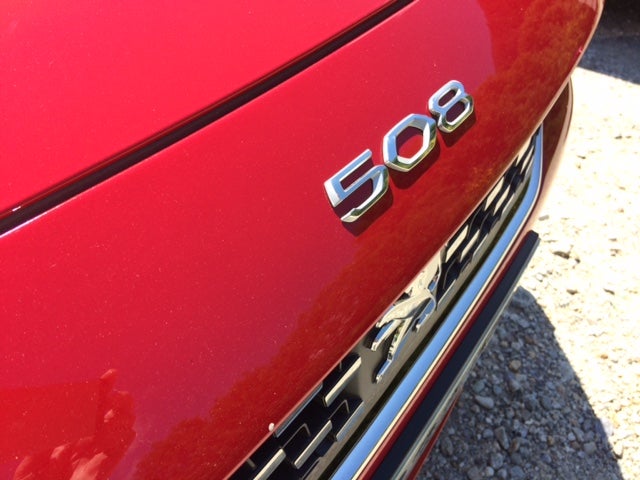
There are nice touches, speaking to the “high-end generalist” agenda and reminding customers of the great heritage of this venerable brand. (It started out making pepper mills in the nineteenth century, as it still does and, indeed, still with a substantial Peugeot family influence on the company). I liked the old-fashioned 508 badging on the nose, the frameless doors, the little interior lights on the door pillar next to the coat hooks and the piano key style controls for satnav, climate etc. GT-line is supposed to be highest level of trim but a lower specced car (in Allure trim level) – but light grey leather and the full-length sunroof is the ideal option to go for.
Overall the cabin has a bit of an aircraft cockpit feel, reminiscent of its cousin the DS5 and the current Jaguar saloons, with the fascia wrapping round you. The dials are raised so they’re almost in the direct sightline of the driver, which Peugeot says obviates the need for “head up” displays. Spin, but I tend to agree with them.
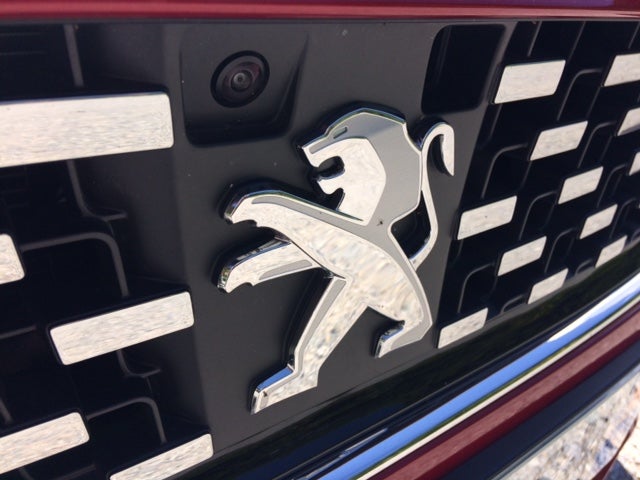
I only had a couple of quibbles. Peugeot insists on fitting its cars with tiny steering wheels with flat tops and bottoms, almost square, and they are not as nice to use as a more conventional, ie wheel-shaped, wheel. That also means there’s no room on the wheel itself for the adaptive cruise controls, which live in a little pod just behind the wheel. They work OK, of course, but it’s inferior to having them within thumb reach. It feels a bit “first generation” now, and not “high end”. There’s also a bit more wind noise around the door mirrors than you’d want at motorway speeds.
The 508 is good-looking and fresh and fashionable, agile enough and if anything is going to tempt people away from the obsessive passion for SUVs and German premium brands, (and preferably both) then this is it. Like Volvo and Jaguar, Peugeot is fighting a pretty desperate rearguard action against the unrelenting forward progress of Audi, BMW and Mercedes-Benz.
Peugeot is planning, equally bravely, to introduce a conventional booted sedan version of the 508, plus an estate, and a plug-in hybrid, and these will be revealed later in the year. No sign of a pure-electric version though, and you do wonder why PSA is so slow about electric cars.
Soon the 508 will probably form the basis of the next Vauxhall/Opel Insignia. That will be good news for Vauxhall and Opel customers but maybe less so for their staff whose jobs look increasingly in jeopardy. Peugeot may well wonder why it needs to develop another family saloon when it has got such a well-designed one already, and why it needs so much excess factory capacity in its expanded European operations. The 508 will shake things up: maybe it is radical after all.
Join our commenting forum
Join thought-provoking conversations, follow other Independent readers and see their replies
Comments